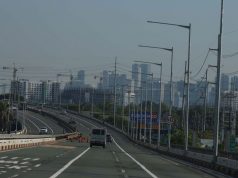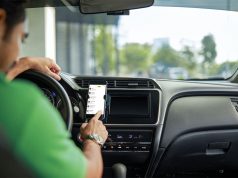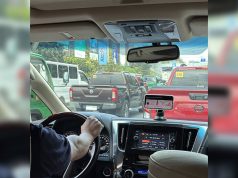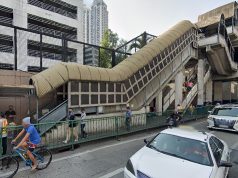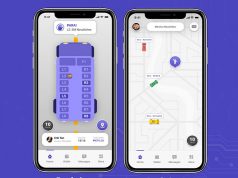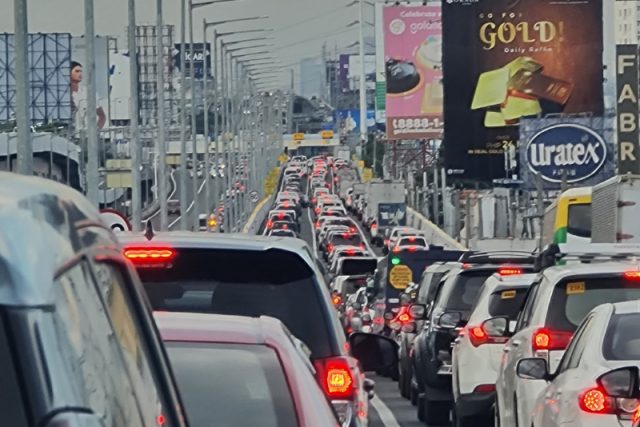
Calls to provide better mass transportation than roads were once again made after Sen. Nancy Binay complained about heavy traffic on a skyway.
RELATED: ADB official calls for transport innovation as commuter queue photo goes viral | Commuter’s complaint on P2P fares opens talks on public transport crisis
Binay on November 12 tweeted a photo that showed a long queue of private vehicles along an area of the elevated expressway.
She then expressed her ire over this heavy traffic situation.
“Atm (at the moment), grabe traffic na din ang skyway,” Binay tweeted with an angry emoji.
Atm grabe traffic na din ang skyway 😡 pic.twitter.com/t9IvDeEtlQ
— Senator Nancy Binay (@SenatorBinay) November 12, 2022
The senator did not indicate what part of the skyway she was stuck in at that time.
Her tweet, however, triggered a renewed call for better mass transportation from commuters on the micro-blogging platform.
Several Twitter users also pointed out to Binay that she is currently in the position to serve the public.
“Talagang you cannot solve traffic problems by creating more roads and bridges. Improve the public transport system! Mga private vehicles nag-cause ng traffic diyan, sen (senator) oh,” one user said.
“You cannot reduce traffic by building more roads. Improve the Public Transportation Madame Senator,” another user tweeted.
“You’re in literally nasa position to do something on this. Beke nemen may magawa ka to provide and improve better mass transportation,” another user suggested.
Some online users also perceived Binay’s complaint as proof that there are too many cars in the Philippines.
“And this is for those who can afford to use the skyway, what more sa baba. Too many people have too many cars in the PH, esp in MNL. If public transport was better, and if cities were greener (more walkable or bikeable) this wouldn’t be as big a problem,” one user said.
As of writing, Binay neither gave an update on her complaint nor responded to these commuters’ calls.
Induced demand for transport
Several users also cited reputable sources that explained why building more roads, especially highways, results in a phenomenon called “induced demand” in different parts of the world.
One of the sources was a video from Vox, an online media publication, titled “How highways make traffic worse”. It was released in February 2021.
In the accompanying article of the video, induced demand was explained as an overlooked theory or phenomenon wherein road or lane expansion will just entice more drivers to use them, thus clogging more of the roads than freeing them up.
“In this case, the supply is highway lanes, and the demand is more and more drivers. Meaning: If you build more highway lanes, more drivers will fill them up,” Laura Bult wrote.
“The concept of induced demand has been around since the 1960s — nearly as long as the inception of the federal highway system — and has been proven by several studies since. But it still hasn’t stemmed the tide of big, expensive highway infrastructure projects as a Band-Aid to congestion,” the article further reads.
Another source was an infographic from a study titled “Driving Down Emissions” that was published by an advocacy organization in the United States Transportation for America.
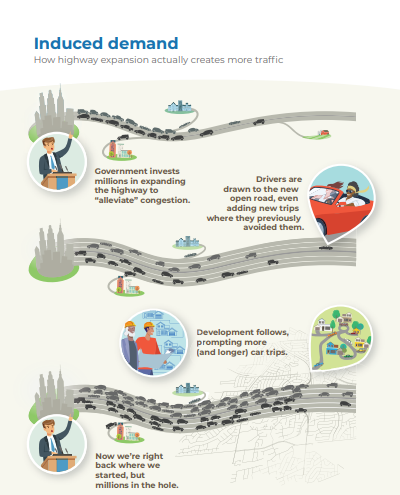
Released in October 2020, the study explained that induced demand for roads and highways also drives up gas emissions in the United States.
“New highways, roads, and lanes induce more driving (VMT), which leads to more emissions and ultimately more congestion, a feedback loop referred to as ‘induced demand,’” the report read.
“The evidence for induced demand is overwhelming. For example, one recent study suggests driving increases in exact proportion with increases in lane mileage—a 10 percent increase in lane miles can lead to a 10 percent increase in driving,” it added.





